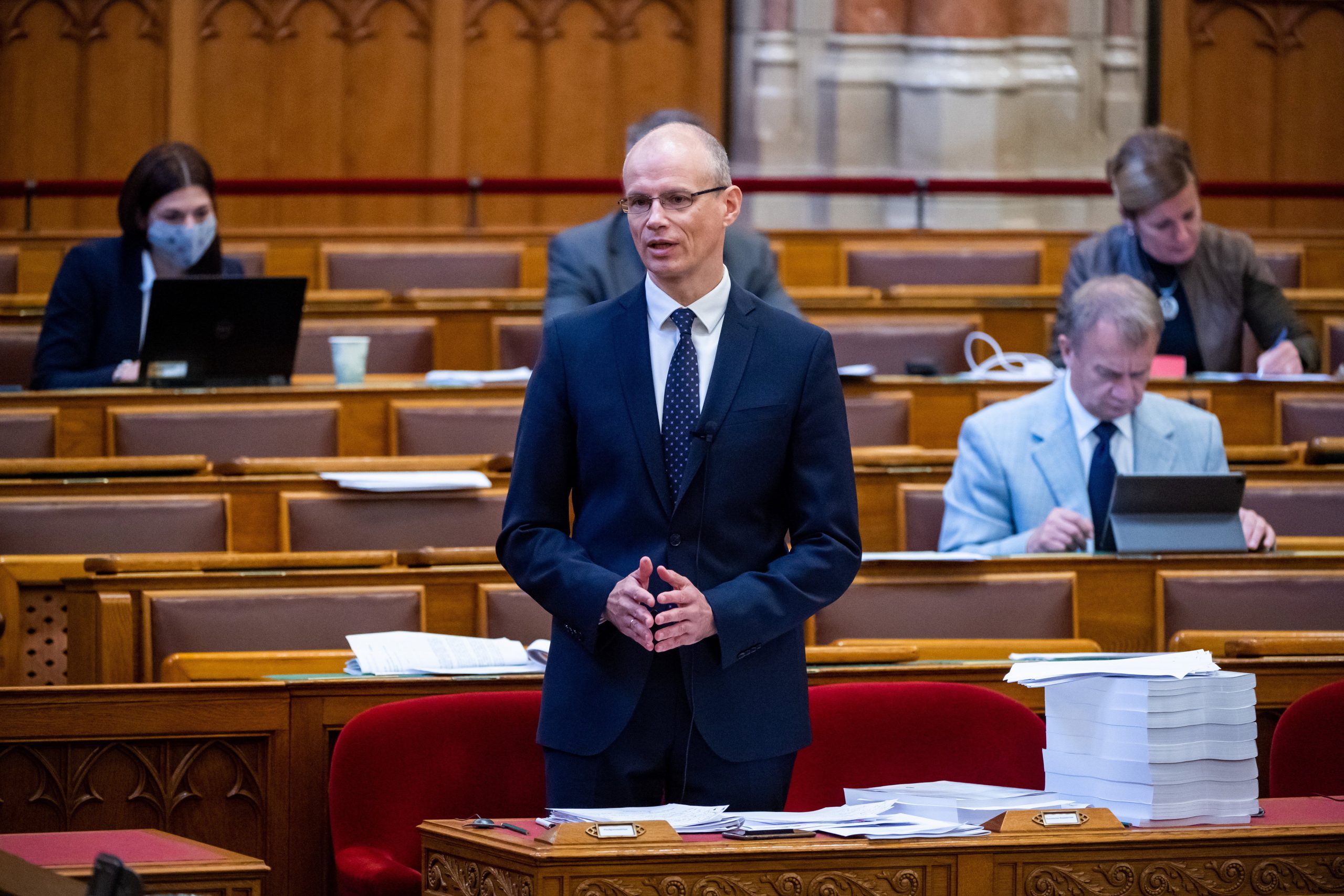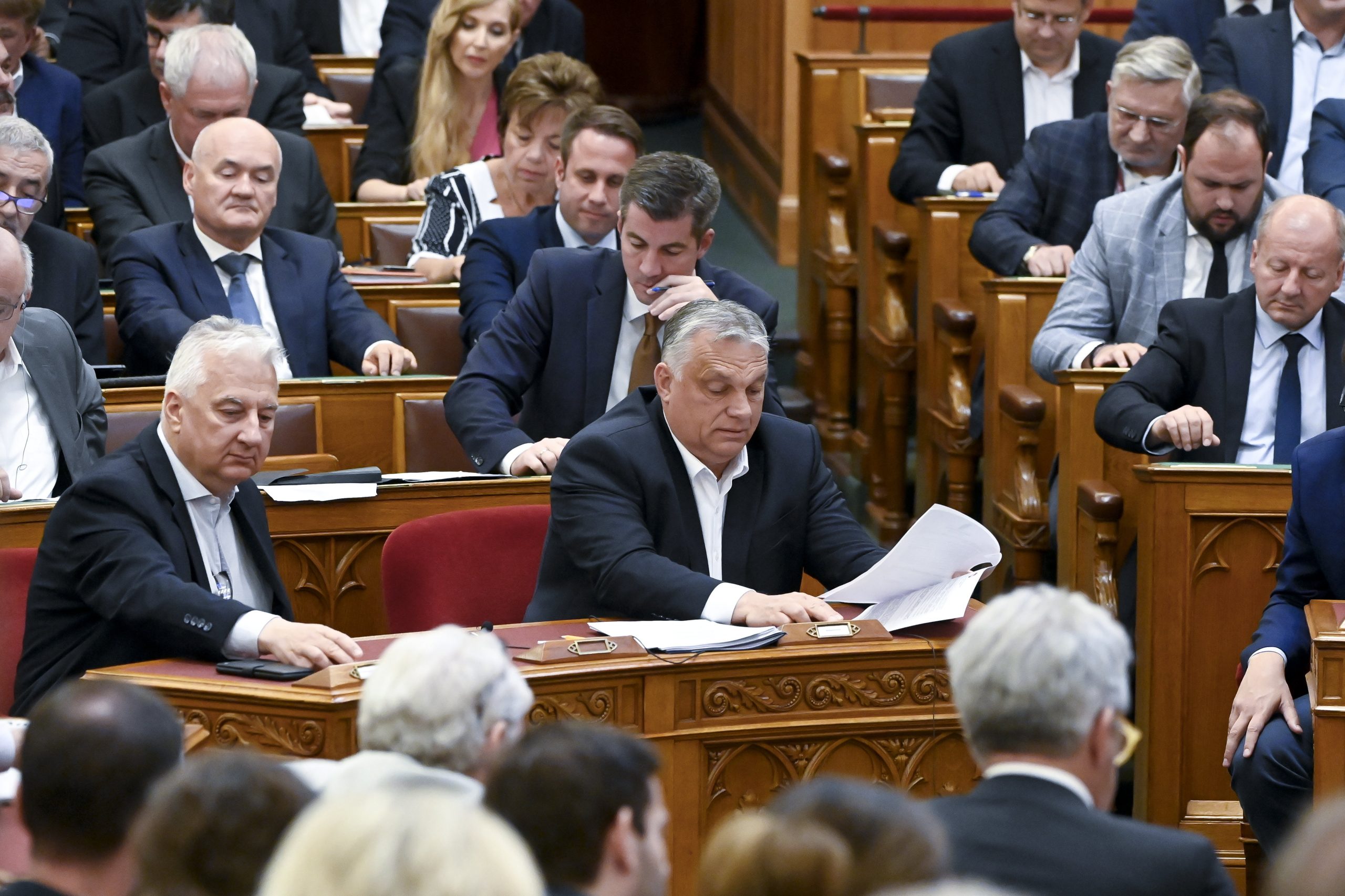
The budget is also creating a 170 billion forint reserve to "cushion against unforeseen developments," Péter Benő Banai, state secretary from the finance ministry said.Continue reading

The Hungarian Parliament approved the 2023 central budget on Tuesday with 135 votes in favor and 54 against. In next year’s budget, the government expects economic growth at 4.1 percent, a deficit target of 3.5 percent, and inflation at 5.2 percent.
This article was originally published on our sister-site, Ungarn Heute.
Ahead of the decision, Árpád Kovács, President of the Budget Council, said that the Council believes that the amendments in the unified budget proposal will not change the planned cash flow ratio, so the level of public debt and the accumulated deficit will not change. He added that the requirements of the Basic Law were met.
The government is committed to using the budget to support families, protect pensions, secure the results of ancillary cost reduction, strengthen the country’s security, protect jobs and promote job creation, and ensure economic growth.
The central subsystem of the state will have expenditures of HUF 33,426 billion (84.1 billion euros) next year, while revenues will amount to HUF 31,074 billion (78.2 billion euros). The deficit, therefore, will amount to HUF 2,352 billion (5.9 billion euros).
By the end of next year, the government aims to reduce public debt to 73.8 percent of the GDP, which is expected to be 76.1 percent by the end of this year.
In next year’s budget structure, two new funds will replace the previous ones: the Protection Fund for Pension Cuts with HUF 670 billion (EUR 1.6 billion), and the Defense Fund with HUF 842 billion (EUR 2.1 billion).
The first will provide funding to maintain the ancillary cost reduction, while the defense fund will allow the government to fulfill its commitment to NATO to increase defense spending earlier, by the end of 2023.
The domestic operating budget will include both revenues and expenditures of 27,017 billion forints (68 billion euros), while the domestic supplementary budget will include expenditures of 3,000.5 billion forints (7.5 billion euros) and revenues of 1,999.3 billion forints (5 billion euros).
On the expenditure side of the EU development budget, the government expects to spend 3,407 billion forints (8.5 billion euros) and receive 2,057 billion forints (5.1 billion euros), targeting a deficit of 1,350 billion forints (3.4 billion euros).
The budget for family allowances will amount to 3,230 billion forints (8.1 billion euros) in 2023, 453 billion forints (1.1 billion euros) more than this year. Of this, 370 billion forints (931 million euros) will be used to maintain tax and contribution benefits for families, for family taxation, income tax exemptions for women with at least four children, and for benefits for first-time married couples.
The government will spend 155 billion forints (390 million euros) on the income tax exemption for under-25s, while more than 490 billion forints (1.2 billion euros) will be allocated to the housing program.
Pension benefits will amount to almost HUF 4,900 billion (EUR 12.3 billion) next year. The full thirteenth-month pension will be maintained, while pensions will be increased in line with inflation.
HUF 1,375 billion (3.4 billion euros) will be available for defense and almost HUF 1,013 billion (2.5 billion euros) for the police.
2,670 billion forints (6.7 billion euros) have been budgeted for healthcare. For next year, some 2,371 billion forints (5.9 billion euros) is available for education.
The budget provides for a total of HUF 3,400 billion (8.5 billion euros) in payments and more than HUF 2,000 billion (5 billion euros) in EU revenues for the two EU cycles. Hungary will contribute HUF 604 billion (1.5 billion euros) to the EU budget.
976 billion forints (2.4 billion euros) have been earmarked to support the work of local self-governments, 102 billion forints (256 million euros) more than this year, and the total budget for the self-government system is 4,000 billion forints (10 billion euros). The “Modern Cities” and “Hungarian Villages” programs will also continue.
Source: MTI
Featured image via Szilárd Koszticsák/MTI